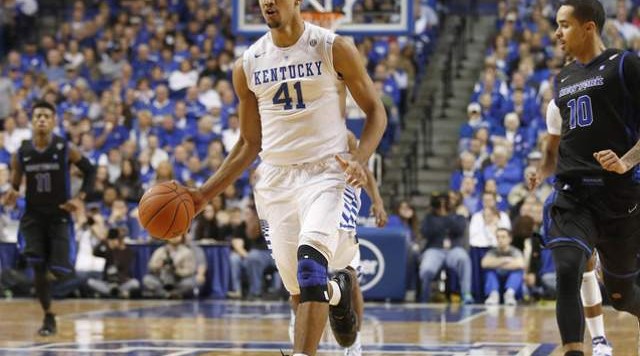Follow us on Twitter @TheStudentSect
In 2007, the unemployment rate for college graduates was 5.5 percent; as of 2014, it’s 8.5 percent (Economic Policy Institute). As of 2013, the Center for College Affordability and Productivity reported that nearly half of college graduates were working jobs that require less than a four-year education.
The CCAP also concluded in the study that this wasn’t something that was ending anytime soon. It noted that 38 percent of college graduates worked in jobs that didn’t require a high school diploma, and that the number of college enrollments and graduations will continue to exceed the number of high-skilled degree-requiring jobs going forward, meaning the problem will only exacerbate.
Jim Delany is a smart man, perhaps the smartest in all of college athletics. That, no one can deny. But he’s woefully missing the mark with the recently released “Education First, Athletics Second” letter where he proposes the idea of freshman ineligibility as a viable fix for low graduation rates in men’s basketball and college football.
Much of what Delany says is correct … the emphasis on sports over academics at the high level cash cow sports, and the research on the in-season versus out of season academic performance is harrowing to see, but it is what it is. It might not be what the majority of people want to see, but it’s what exists.
But it doesn’t make freshman ineligibility the fix. Delany’s letter speaks of ” To the extent such avenues are limited in the sports of football and men’s basketball, it is the responsibility of the professional leagues in those sports to provide such opportunities.”
Yet the NCAA cannot force professional leagues to not treat the NCAA as a minor league of sorts, and while what he’s saying in theory is correct, you’d be asking professional leagues to change their entrance policies (though, it should be explored), particularly the NBA regarding the “One and Done” rule.
The problems with freshman ineligibility are many. Even supposing the NCAA were able to strong arm professional leagues into taking players straight from high school if they wanted to go, you’re still probably looking at a lot of players, especially in basketball, that feel they cannot afford to spend two years before making money plying a trade craft they reasonably could be doing now.
What it would lead to is probably a glut of players either choosing to play overseas or trying their hand at the NBA Development League (NBADL) when maybe they would have been better served playing a year in college and then going pro.
The real stink is what happens if the NBA (and to be honest, basketball is what this is about) refuses to let high schoolers declare, and you have players who don’t want to go to college for a minimum of two years and have nowhere else to go?
But the real devil no one wants to talk about with the whole “pay for play” or freshman ineligibility arguments want to approach is really digging into just how valuable the “college degree” is. Yes, hard work will always get you somewhere, but if 10 people are working their hardest and there are 5 job openings, it really doesn’t matter.
The freshman ineligibility … or to some extent, the “don’t pay players” crowd (of which I really take no side and am still trying to make a decision on personally) trumpet the college experience and the life long skills gained as if they lead to automatic success.
Well, they don’t. And especially if Delany is going to point to the low qualifying standards given as a reference point during this manifesto, it probably should be important to note that those struggling to graduate are at an even greater disadvantage than those who soared through college academically.
Much of Delany’s letter is rooted in opinion rather than fact, which is fine. In the conclusion, he writes:
At the end of Delany’s letter, he states … “Let the national discussion begin.”
No one should disagree with that. But it’s high time someone chooses the right topic.

